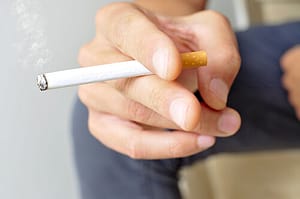
“Quitting smoking will improve anyone’s health. But our study shows that giving up cigarettes is even more important for adults in recovery from alcohol since it will help them stay sober,” reported lead study author Renee Goodwin, associate professor of epidemiology at New York City’s Columbia University Mailman School of Public Health.
The study, published in the journal Alcoholism: Experimental and Clinical Research, included tens of thousands of U.S. individuals recovering from alcohol addiction. After following subjects for three years, Goodwin and her team found that daily and nondaily smokers were twice as likely to return to alcohol dependence than nonsmokers, even taking factors like nicotine dependence, illicit drug use, and mood disorders into consideration.
Smoking is an all-too-common habit for problem drinkers, and it is often not addressed when rehab facilities customize addiction treatment plans. While researchers are unsure why smoking triggers alcohol relapse, previous studies indicate a connection between neurochemicals, behavior, and smoking/drinking. In some cases, alcoholics may smoke to compensate for the physical withdrawal symptoms they experience during rehab. It is also thought that many alcoholics justify cigarette use with the assertion that it is “just too difficult” to give up smoking and drinking simultaneously.
Begin Addiction Treatment at Red Oak Recovery®
If you are struggling with addictive substances and are ready to take charge of your life, Red Oak Recovery® can help. Our young adult drug and alcohol treatment program believes in addressing all addiction and mental health issues in an integrated fashion, and our holistic therapies can help clients achieve success with alcohol and cigarette abstinence. To learn more about our North Carolina treatment program, call 866.457.7426 to speak with an enrollment counselor about an individually tailored recovery program for your child or your loved one.








